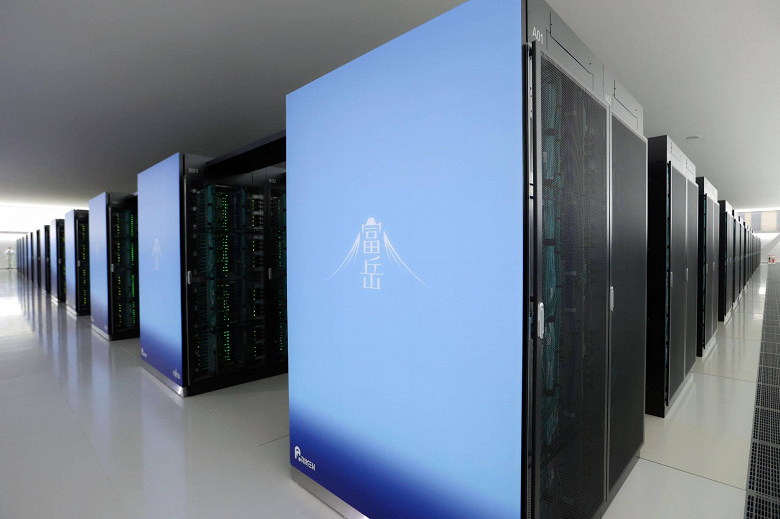Quantum-classical hybrids usher in a new era of computing power in Japan
Japan's Arm-based supercomputer Fugaku will team up with IBM's latest quantum system as part of a project to research and develop future computing systems. IBM announced an agreement with the Japanese government research institute RIKEN to deploy IBM Quantum System Two and integrate it with the Fugaku supercomputer at the RIKEN Computational Science Center in Kobe.
This combination is designed to enable the creation of so-called quantum-enabled supercomputers, which IBM sees as the future of traditional high-performance computing. In such systems, quantum technologies will become an integral part of the architecture, suggesting that quantum computing is a viable and practical technology.
The Fugaku supercomputer, built by Fujitsu using 152,064 custom-designed A64FX processor chips, was the most powerful known supercomputer in the world from 2020 until it was surpassed by Frontier's exascale system in 2022.
IBM Quantum System Two, unveiled at the annual IBM Quantum Summit in New York in December, is based on the 133-qubit Heron quantum processor. According to IBM, it will be the only quantum computer that will be combined with the Fugaku supercomputer.
The integration is part of a project funded by the New Energy and Industrial Technology Development Organization (NEDO) of the Japanese government. The goal of the project – demonstrate the benefits of such hybrid computing platforms for deployment as services in the «post-5G era», promoting the development of science and business in Japan.
In addition to delivering the hardware, IBM said it will «work to develop a software stack for creating and running integrated quantum-classical workflows in a heterogeneous hybrid quantum-HPC computing environment». These features are aimed at improving the quality of algorithms and reducing their execution time.
Continuing the trend of developing hybrid quantum-classical computing platforms, Japanese quantum company QuEra Computing announced that it has received a contract worth 6.5 billion yen ($41.4 million) from the National Institute of Advanced Industrial Science and Technology of Japan (AIST) ). The contract provides for the installation of one of the QuEra systems together with an ABCI-Q supercomputer based on NVIDIA processors.
According to QuEra, the ABCI-Q system is expected to become a platform for a number of areas, including the development of quantum circuit simulation and quantum machine learning, the creation of classical-quantum hybrid systems, as well as the development of new algorithms inspired by quantum technologies .
The move demonstrates Japan's strong interest in combining quantum and classical computing power to accelerate scientific research and development. Such hybrid platforms are seen as the key to expanding the capabilities of quantum computing and its practical applications in various fields.
This contract follows a recently announced agreement between IBM and Japanese research institute RIKEN to integrate IBM's quantum system with the Fugaku supercomputer. These initiatives underscore Japan's commitment to leading the development of advanced computing technologies that combine quantum and classical approaches.

